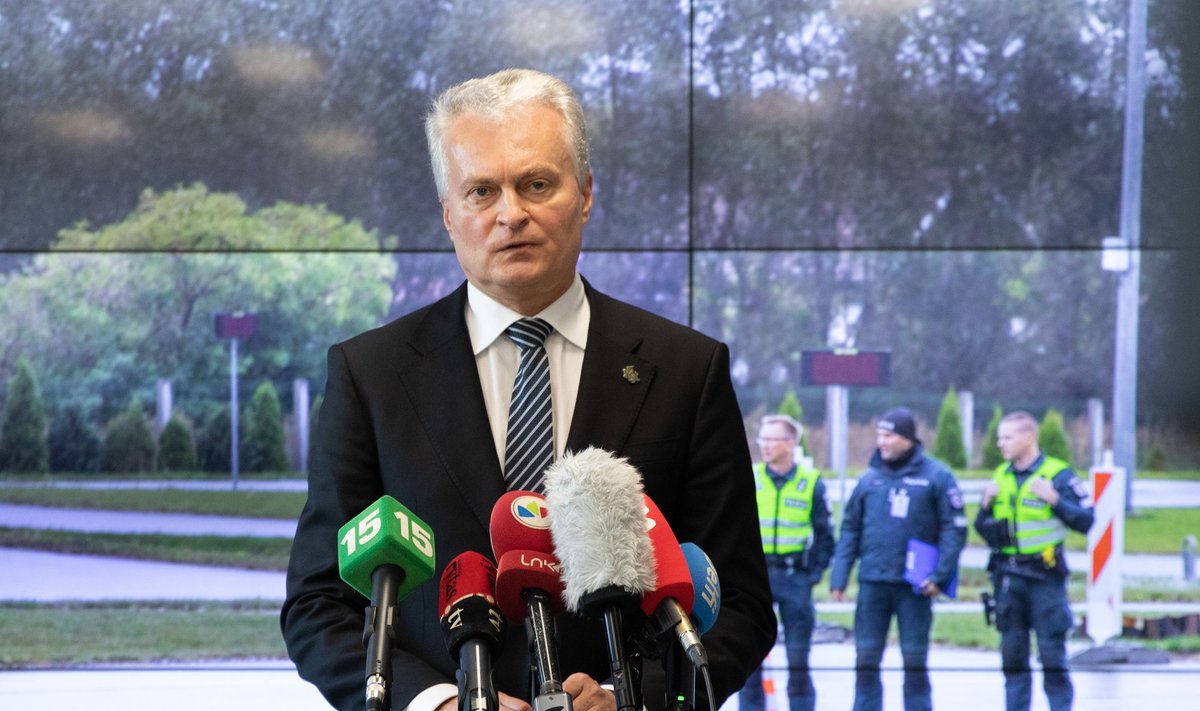"The guidelines for Lithuania's position on the German chancellor's contacts with Lukashenko were discussed during today's working meeting with representatives of the government's office, the Foreign Ministry and the Defense Ministry at the Presidential Palace," Ridas Jasiulionis, Gitanas Nauseda's spokesman, told BNS before Merkel's second phone conversation with the Belarusian strongman this week.
"[The guidelines] have been communicated to the German Federal Chancellery," the spokesman said.
"It was stressed that the EU cannot give in to Lukashenko's pressure: irregular migrants from Belarus must be repatriated to their countries of origin. The chancellor's contacts aimed at achieving this goal are not dialogue, they are crisis management", he said.
The guidelines also say that "the requirement for Belarus to allow international humanitarian organizations (United Nations Refugee Agency, International Organization for Migration) to work at the border must be maintained and that they should be able to work with irregular migrants", according to the spokesman.
"We understand the humanitarian aspect, the tragedy of migrants held hostage by the regime," Jasiulionis said. "The international community must help migrants stranded in Belarus."
"It was also stressed that sanctions against the Lukashenko regime must be continued and are an important instrument of leverage and that the position that Lukashenko is illegitimate [president] remains unchanged," he added.
The German chancellor's spokesman said after Merkel's second conversation with Lukashenko that she "stressed the need, with the support of the United Nations High Commissioner for Refugees, the International Organization for Migration and the cooperation of the European Commission, to provide humanitarian aid and repatriation facilities to the affected people".
The meeting at the Lithuanian Presidential Palace took place on Wednesday afternoon, before Merkel's second phone call with Lukashenko.
